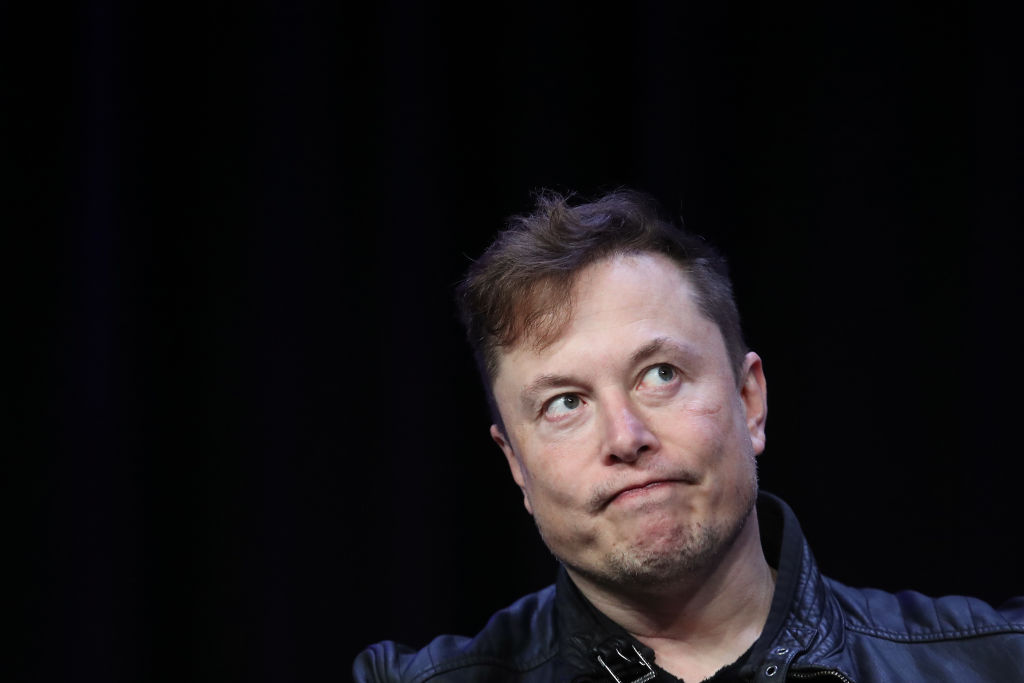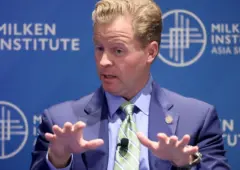Elon Musk Steps Down from Government Efficiency Post After Struggles in DC
29.05.2025 13:30 2 min. read Alexander Zdravkov
Elon Musk has stepped down as head of the Department of Government Efficiency (DOGE), citing the difficulty of reducing federal spending and bureaucracy.
Elon Musk has stepped down from his role leading the Department of Government Efficiency (DOGE), citing the difficulty of reducing federal spending and bureaucracy. Appointed as a Special Government Employee, Musk’s 130-day term was set to end May 30. He confirmed his departure on May 29 in a post on X, thanking President Donald Trump “for the opportunity to reduce wasteful spending.” The White House later confirmed that off-boarding had begun.
In an interview with The Washington Post, Musk described the federal system as more dysfunctional than he expected. He also criticized a massive tax relief bill passed by House Republicans, claiming it worsened the deficit and undermined DOGE’s work.
DOGE claims it saved $175 billion since Trump returned to office in January — far short of Musk’s original $2 trillion goal, later reduced to $150 billion. Media outlets have challenged the accuracy of the reported savings. DOGE reportedly cut 260,000 federal jobs, about 12% of the workforce, through layoffs and buyouts.
Despite stepping down, Musk said on X that DOGE’s mission will continue and could influence broader government practices.
His exit comes as 14 states pursue a lawsuit accusing him and DOGE of overstepping their authority — including claims of unauthorized firings, canceled contracts, and improper access to federal data.
In a May 28 interview with Ars Technica, Musk admitted he may have focused too much on politics, potentially to the detriment of Tesla. Still, he downplayed his actual time spent on DOGE and blamed media exaggeration. When Musk previously said he’d reduce his involvement, Tesla stock rose over 5% — despite an 80% decline in quarterly net income.
Tesla still holds 11,509 Bitcoin, worth around $1.24 billion. Its shares are down nearly 6% this year, mirroring declines among other major tech firms.
-
1
FTX Pushes to Dismiss Billion-Dollar Claim from 3AC
23.06.2025 15:00 1 min. read -
2
BIS Slams Stablecoins, Calls Them Ill-Suited for Modern Monetary Systems
26.06.2025 9:00 1 min. read -
3
ARK Invest Cashes In on Circle Rally as Stock Soars Past $60B Valuation
24.06.2025 19:00 1 min. read -
4
FTX Pushes Back Against $1.5B Claim From Defunct Hedge Fund 3AC
23.06.2025 11:00 1 min. read -
5
Trump’s ‘Big, Beautiful Bill’ Approved: What It Means for Crypto Markets
04.07.2025 7:00 3 min. read
Coinbase Strengthens DeFi Push With Opyn Leadership Acquisition
Coinbase has taken a major step toward expanding its decentralized finance (DeFi) presence by bringing onboard the leadership team behind Opyn Markets, a prominent name in the DeFi derivatives space.
Grayscale Urges SEC to Allow Multi-Crypto ETF to Proceed
Grayscale Investments has called on the U.S. Securities and Exchange Commission (SEC) to allow the launch of its multi-crypto ETF—the Grayscale Digital Large Cap Fund—arguing that further delays violate statutory deadlines and harm investors.
Robinhood Launches Ethereum and Solana Staking for U.S. Users
Robinhood has officially introduced Ethereum (ETH) and Solana (SOL) staking services for its U.S. customers, offering a new way for users to earn rewards on their crypto holdings.
Binance CEO Reveals What’s Fueling the Next Global Crypto Boom
Binance CEO Richard Teng shared an optimistic outlook on the future of cryptocurrencies during an appearance on Mornings with Maria, highlighting growing global acceptance, regulatory progress, and strategic reserve integration.
-
1
FTX Pushes to Dismiss Billion-Dollar Claim from 3AC
23.06.2025 15:00 1 min. read -
2
BIS Slams Stablecoins, Calls Them Ill-Suited for Modern Monetary Systems
26.06.2025 9:00 1 min. read -
3
ARK Invest Cashes In on Circle Rally as Stock Soars Past $60B Valuation
24.06.2025 19:00 1 min. read -
4
FTX Pushes Back Against $1.5B Claim From Defunct Hedge Fund 3AC
23.06.2025 11:00 1 min. read -
5
Trump’s ‘Big, Beautiful Bill’ Approved: What It Means for Crypto Markets
04.07.2025 7:00 3 min. read


